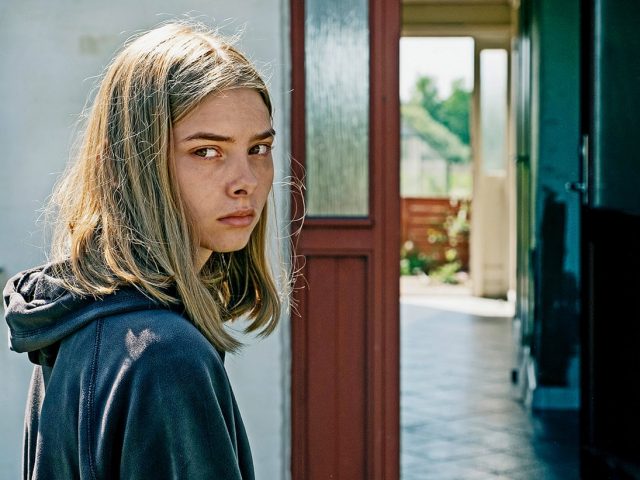AFI Fest 2020: Wildland, by David Bax

If you’re watching Jeanette Nordahl’s Wildland and you can’t quite put your finger on what’s so familiar about it–and you also haven’t read a single other review of it, as they’ve all pointed out this comparison without fail–it’s because the Danish film’s basic premise, as well as the majority of its themes and tone, are lifted wholesale from David Michôd’s Australian, decade-old Animal Kingdom. Making the protagonist a girl (Sandra Guldberg Kampp, who’s very good here; in fact, the movie is elevated by uniformly strong performances) is an interesting change but the whole thing still has the taste of soda gone flat.
Ida (Kampp) has just lost her mother and, against her own objections, been placed in the care of her Aunt Bodil (The Duke of Burgundy‘s Sidse Babett Knudsen), along with Bodil’s three sons, Jonas (Joachim Fjelstrup), David (Elliott Crosset Hove) and Mads (Besir Zeciri). Ida is immediately enlisted in the family’s loan-sharking business and soon finds herself tagging along on a collection visit that goes tragically awry.
Nordahl traffics in the broody, spacious quiet of indie movies that want to let you know that they’re serious about being sad. You know the kind, where you can practically hear the air conditioning hum in between a conversation’s sparse, hushed sentences and where every footfall on the hardwood floor sounds like a killer at the door. Still, Wildland manages occasional moments of distinction. There are scenes of intense discomfort, like when Ida, eager to remove the evidence on her bloodstained cast, repeatedly slams her not-yet-healed broken arm against a bathroom counter. And there are even a couple of laughs; David’s girlfriend, Anna (Carla Philip Røder), on her Carpe Diem tattoo: “It’s Latin for YOLO!”
Wildland‘s chief interest is in the question of Ida’s allegiance. As the walls start to close in her, with social workers and detectives wanting to ask her questions while Bodil and her brood walk a line between protecting and threatening her, Ida seems to increasingly side with the latter clan. Are the proclamations (possibly disingenuous) about the importance of family sinking in? Or is she simply a victim of Stockholm Syndrome (it’s still called that even when the movie takes place in an entirely different Scandinavian country, right?).
That’s an interesting gray area for a lead character and, again, Kampp is very good at transmitting Ida’s ambivalence without giving us a clear answer. But, still, the comparison to Animal Kingdom are inescapable and, next to Michôd’s masterfully mounting air of menace and anxiety, the stakes just feel too low. Maybe that’s petty but so are the criminals in Wildland.




























